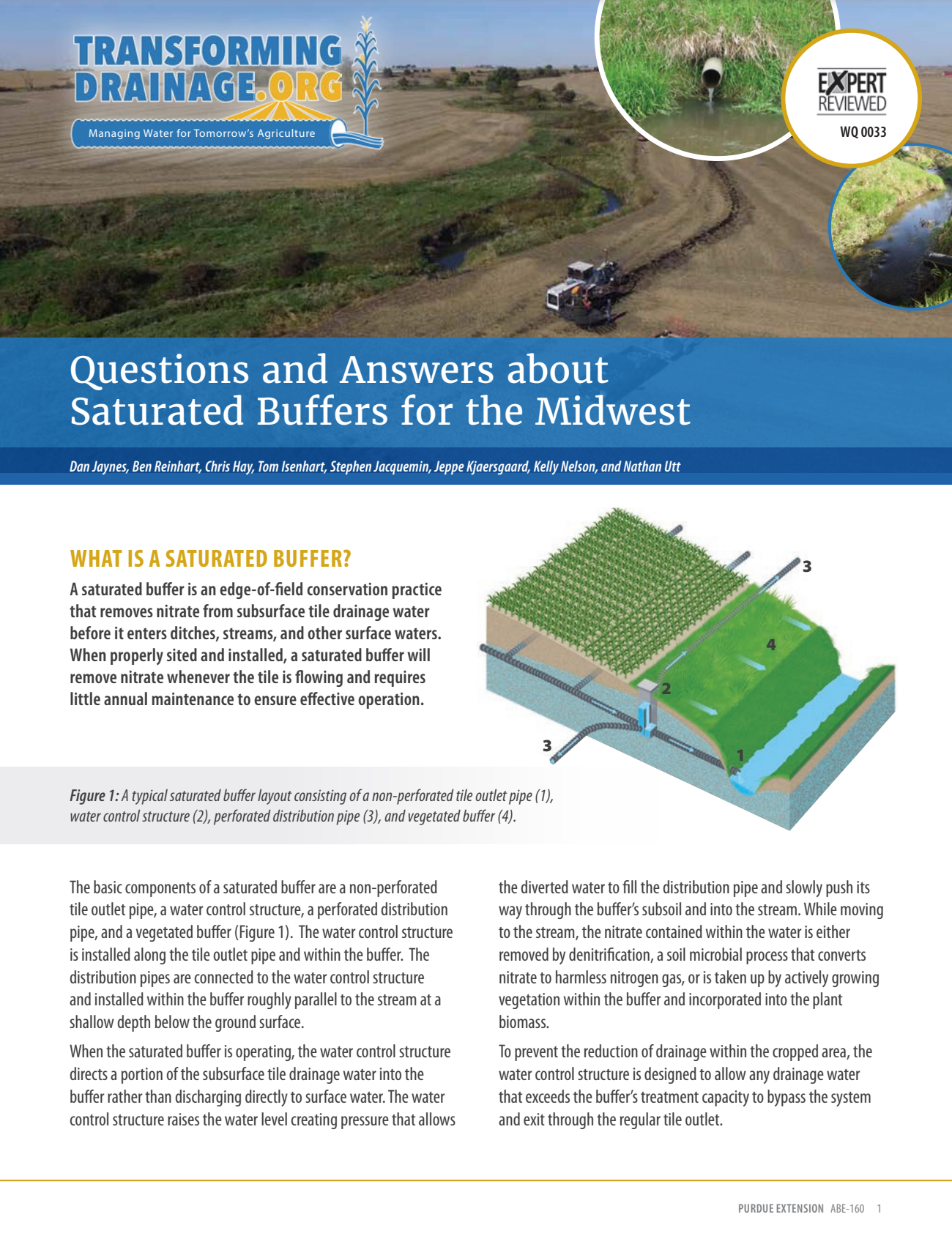The newest episode offers a shorter version that highlights discussion topics like the challenge of scaling up to meet the Iowa Nutrient Reduction Strategy Goals and the need for federal, state and private partnerships to reach the goals.
Read MoreRestoring oxbows can be a low cost way to improve water quality. Learn more in this publication from Iowa State University Extension and Outreach.
Read MoreInformation on grade stabilization structures from Iowa State University Extension and Outreach.
Read MoreLearn about sediment control basins in this 2-page report from Iowa State University Extension and Outreach.
Read MoreLearn about the role farm ponds play in water quality in this quick read 2-page PDF.
Read MoreLearn about how conservation buffers affect water quality in this 4-page report by Iowa State University.
Read MoreLearn about water quality conservation practices you can implement in this 4-page quick read report.
Read MoreLearn about saturated buffers from a panel of experts in this in-depth publication.
Read MoreLearn about cleaning Iowa’s waters with saturated buffers in this Iowa State University Extension publication.
Read MoreLearn more about wetlands in this informative infographic from Iowa State University Extension.
Read MoreLearn about the unique aspects of wetlands in this infographic.
Read MoreWetlands are vital to life as we know it. These amazing, diverse, and biologically productive ecosystems provide a multitude of services: water filtration, trapping of sediment, transformation of pollutants, carbon storage, wildlife habitat, and beauty. Understanding the ecological importance of wetlands, as well as how they function, will help us all better appreciate these vibrant—and vital—parts of our landscape.
Read MoreLearn how woodchip bioreactors work to reduce nitrates and improve water quality.
Read MoreWoodchip bioreactors are a new option to reduce the amount of nitrate in drainage before it gets to local surface waters. This factsheet describes key questions relevant to this innovative approach to water quality.
Read MoreDiscussing a new conservation practice with your tenant can be challenging. To help begin the conversation, we created a new publication series with talking points and relevant research findings about specific conservation practices.
Read MoreWater Quality Matters To Us All provides insight into the attitudes and practices of agencies and stakeholders involved in protecting Iowa's water quality. Based on listening sessions between 2008-2011 with farmers, urban residents, Soil and Water Conservation District commissioners, and field staff from Natural Resources Conservation Service and the Iowa Department of Natural Resources, the book details the institutional, community, and individual impediments towards water conservation and curtailing nonpoint source pollution.
Read More





















